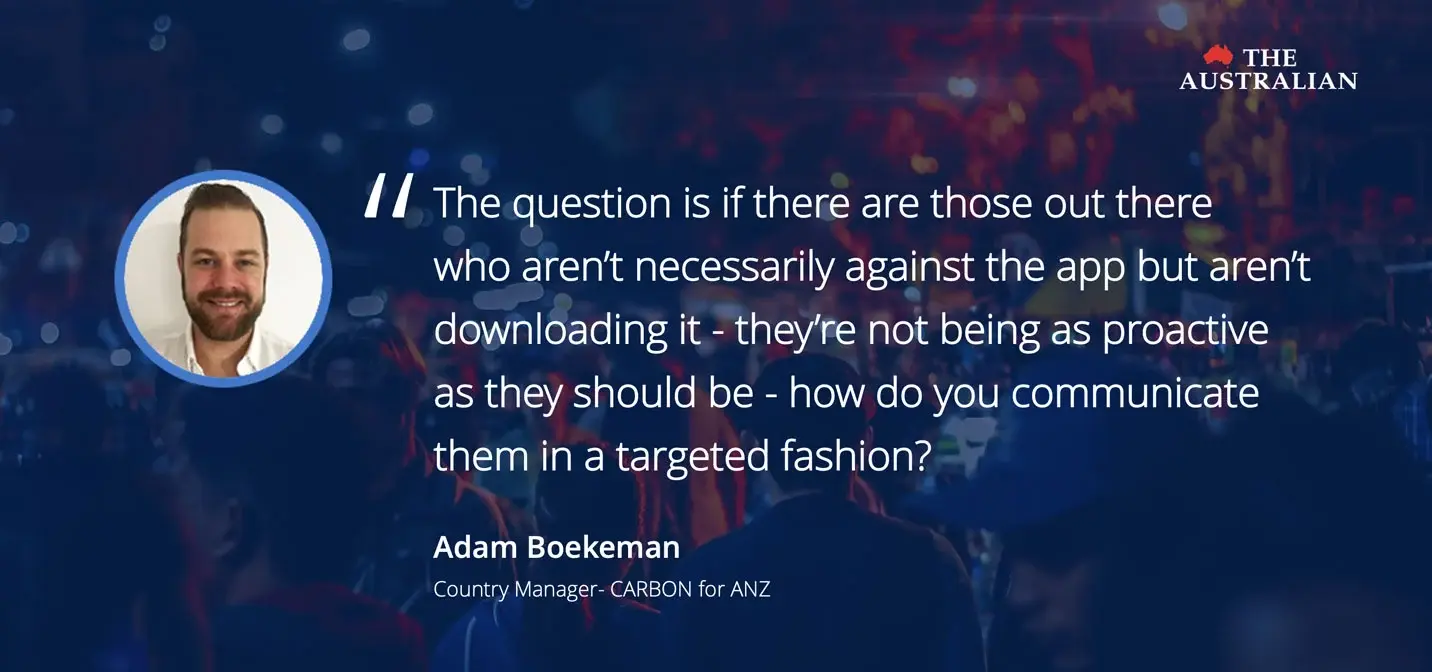Workers at Cedar Meats in Melbourne’s inner west traveled to suburbs up to 20km away after the outbreak, dramatically increasing the chances of spreading the virus, according to data seen exclusively by The Australian. But the same data, generated by the Telstra Ventures-backed company Azira, shows on the whole Melbourne has better implemented social distancing than Sydney, reporting a 57.4 drop in density compared with the NSW capital’s 45.6 percent fall.
Azira says its platform — which uses location data gathered from mobile phones via apps, wi-fi hotspots, and telecom providers — can help the Morrison government better manage the COVID-19 pandemic than the commonwealth’s own app. So far 5.6 million people have downloaded and registered the government’s COVIDSafe tracing app, which needs at least 40 percent of Australians to download it to be successful. Meanwhile, Azira has access to data from 17 million Australian devices, which it says provides a more accurate picture of people’s movements.
Azira country manager Adam Boekeman stressed that the data was anonymized to protect privacy, which is the main reason for the slow take-up of the government’s own app. “The question is if there are those out there who aren’t necessarily against the app but aren’t downloading it — they’re not being as proactive as they should be — how do you communicate them in a targeted fashion?” Mr. Boekeman said. “We can support app adoption, saying to someone you’ve been to a postcode or a high-risk area and encourage them to download the app. That’s quite easy to do.”
Azira generated a report of Melbourne’s mobility for the month to date, homing in on Brooklyn where the Cedar Meats abattoir is located and so far has been linked to 88 COVID-19 infections. The company found that most people within Brooklyn’s 3012 postcode traveled to suburbs up to 20km away across Melbourne’s fast-growing western corridor, which includes Werribee, Derrimut and Point Cook. It also found the top three categories visited were stores, at 14.24 percent, restaurants, at 4.45 percent and general services such as accountants, Centrelink, and Medicare, at 3.5 percent.
“We’ve focused at postcode level — Cedar Meats is in Brooklyn, the Brooklyn postcode is 3012, what do the movements around the postcode look like over the past three weeks? We can infer the people who live there versus the people who are leaving, where they are commuting to if they are in the public health system,” Mr. Boekeman said. “We can determine a whole raft of movements that have come from that suburb, classed as a high-risk suburb, over the past three weeks.”
The study followed Azira generating a global report on how cities were managing social distancing to limit the spread of COVID-19.
It found Victoria’s government had been more successful than NSW in limiting people’s movements around its capital, after it implemented extreme measures in early March, canceling major sporting events, including AFL, and forcing entire sectors to work from home.
Published in The Australian.


